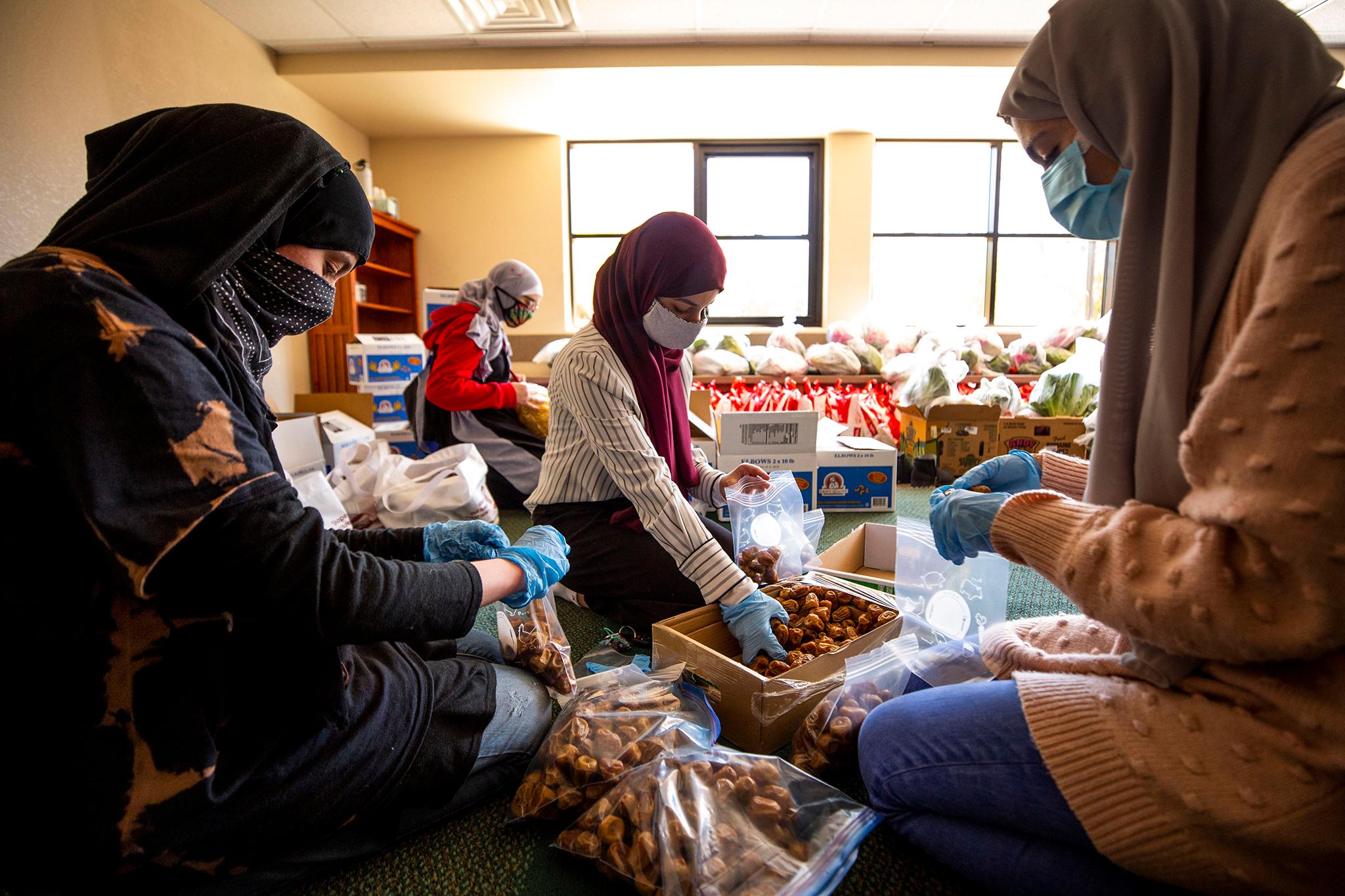In mid-April, just days before Ramadan began, dozens of volunteers spread out on the prayer mats at the Colorado Muslim Society mosque on Parker Road. As worshippers finished their afternoon praises to Allah, others began to cart huge bags of rice, lentils and chicken into the back.
Best friends Abdul and Abdul, who came with their entire Cub Scout troop to help, competed to see who could pack food fastest. Safa Hama, Sarah Alruwayi and Etaf Alghunaim worked on their own piece of the assembly line further across the room, chatting as they went along. It was a moment where friends could come together after a year of isolation and share in a spirit of holiday service.
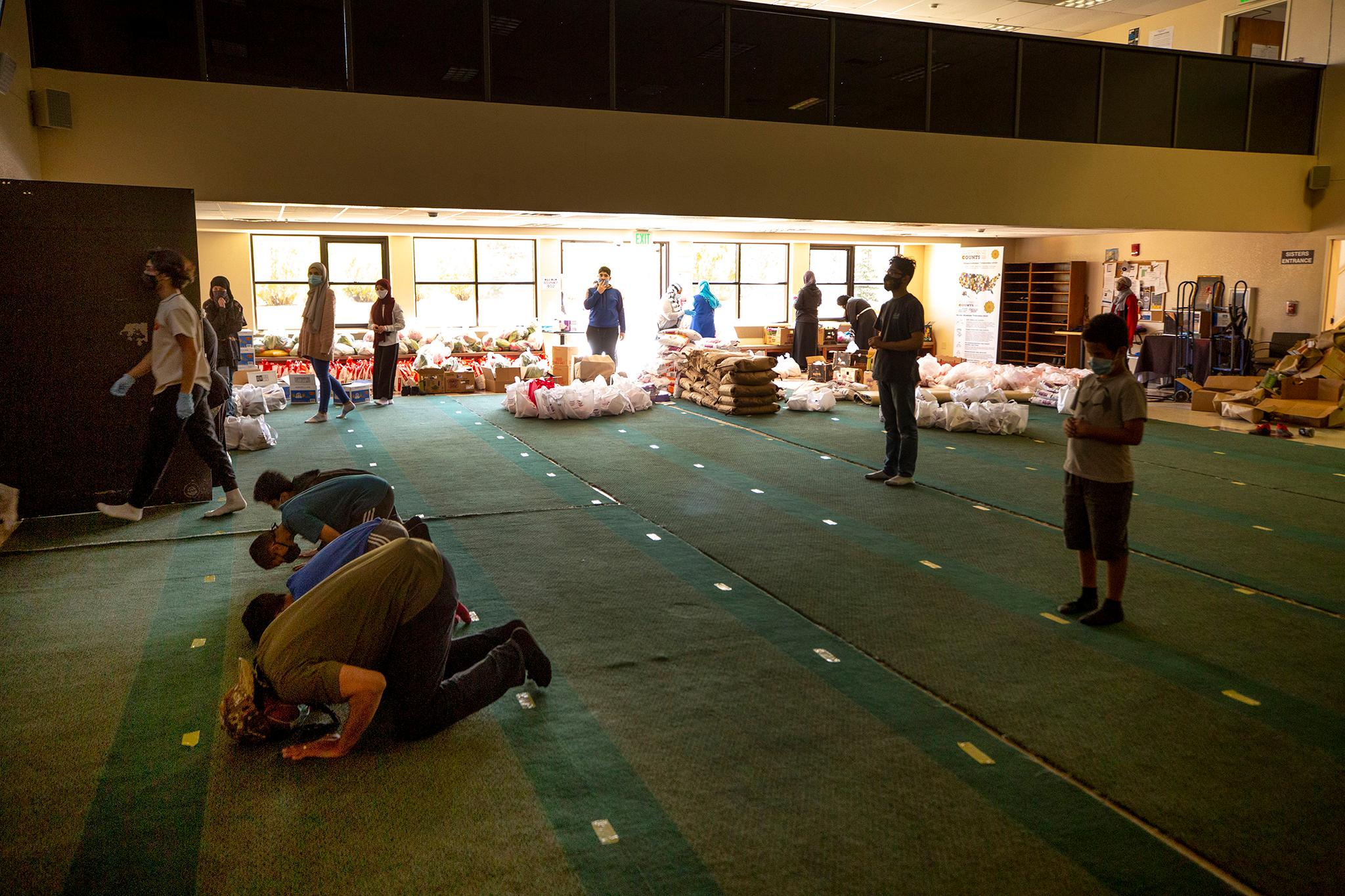
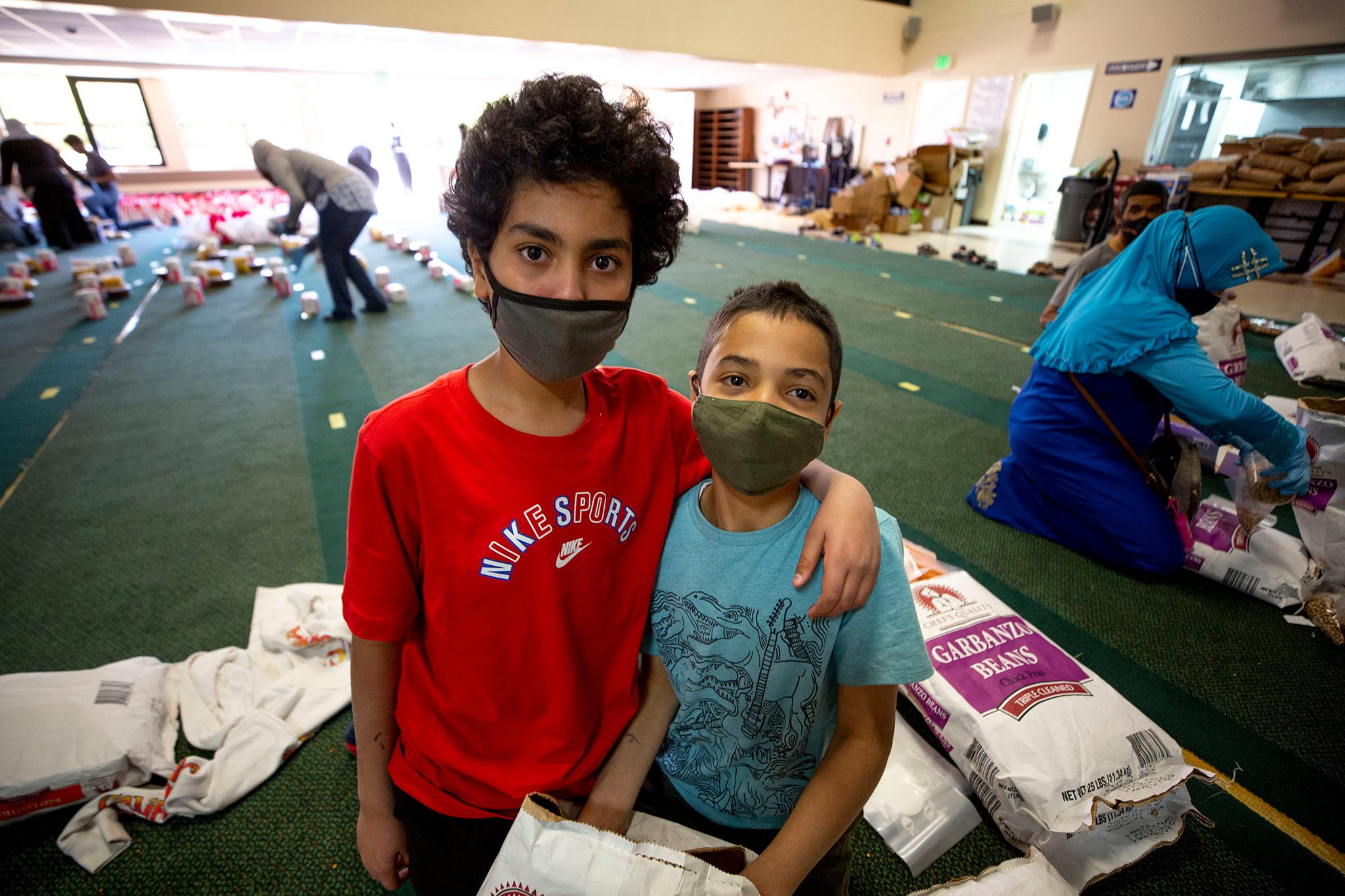
"I was looking for something like this, just to see other people," Alruwayi said as she picked dates out of a crate.
"We're just grateful for having this opportunity to do something good," Alghunaim added. "Hopefully next year it will be better."
This was the beginning of a food drive for the holy month. As Muslims across the world fasted during daylight hours, this collection of local mosque members worked to make sure their neighbors could still eat well.
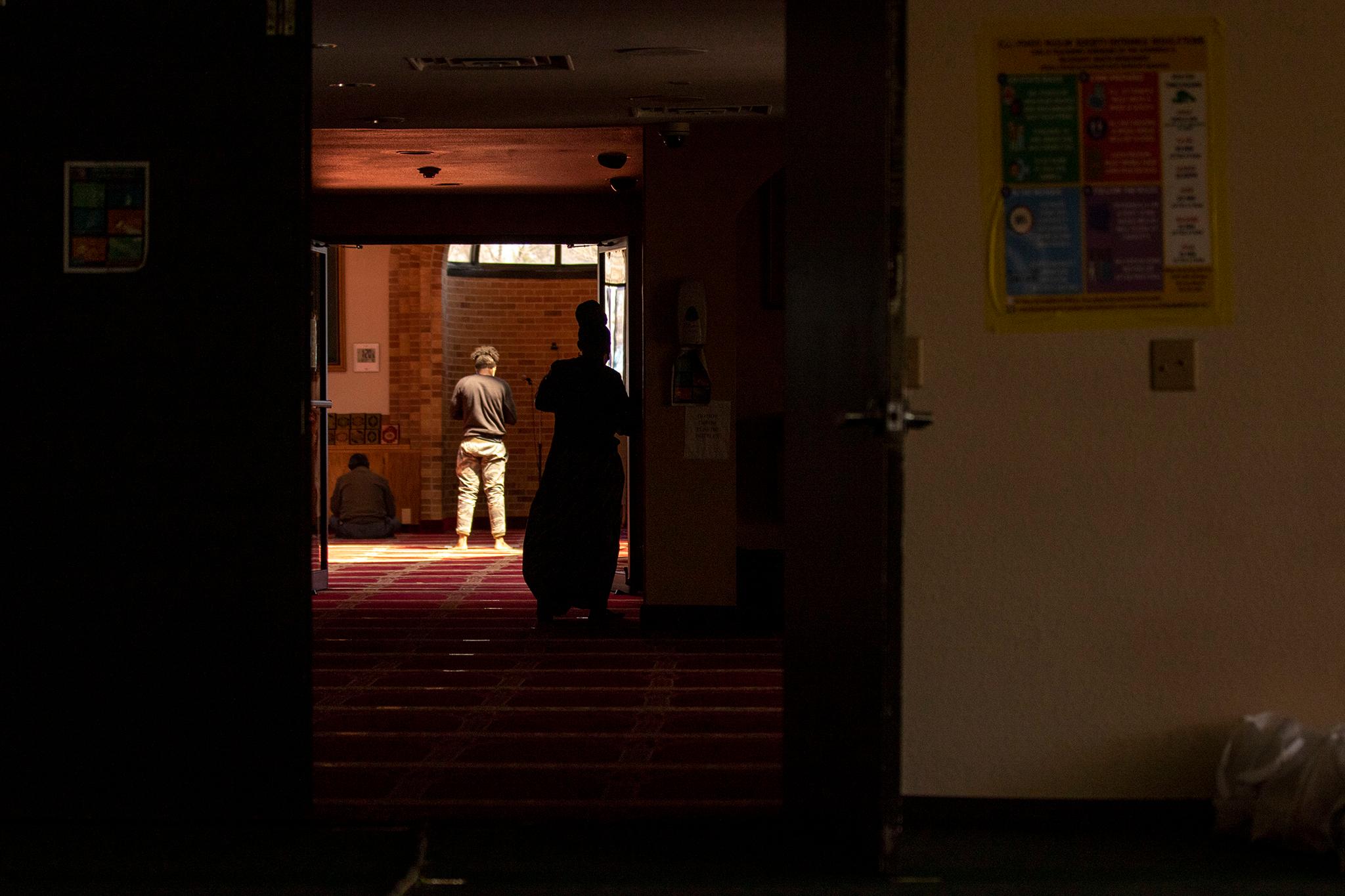
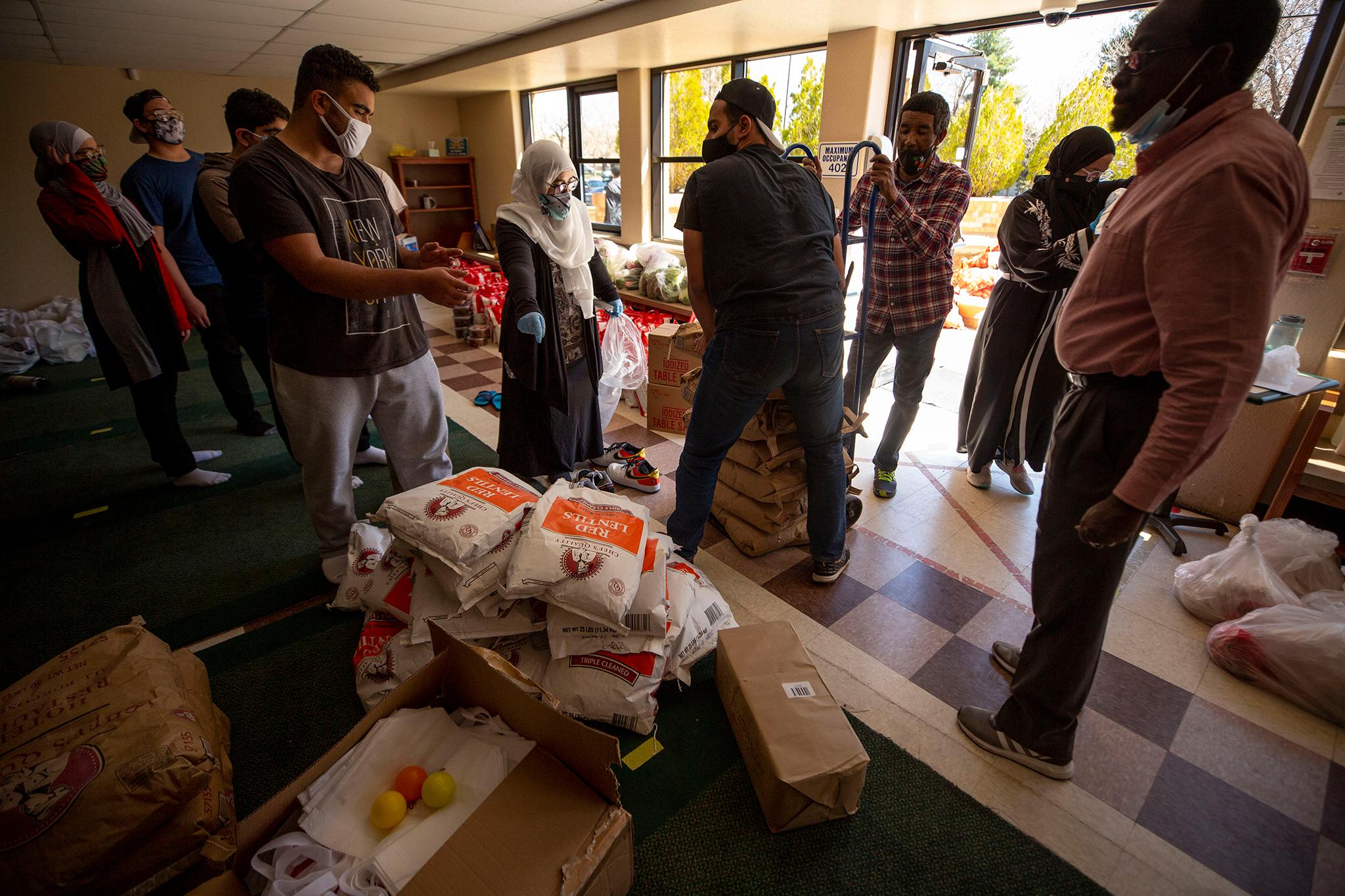
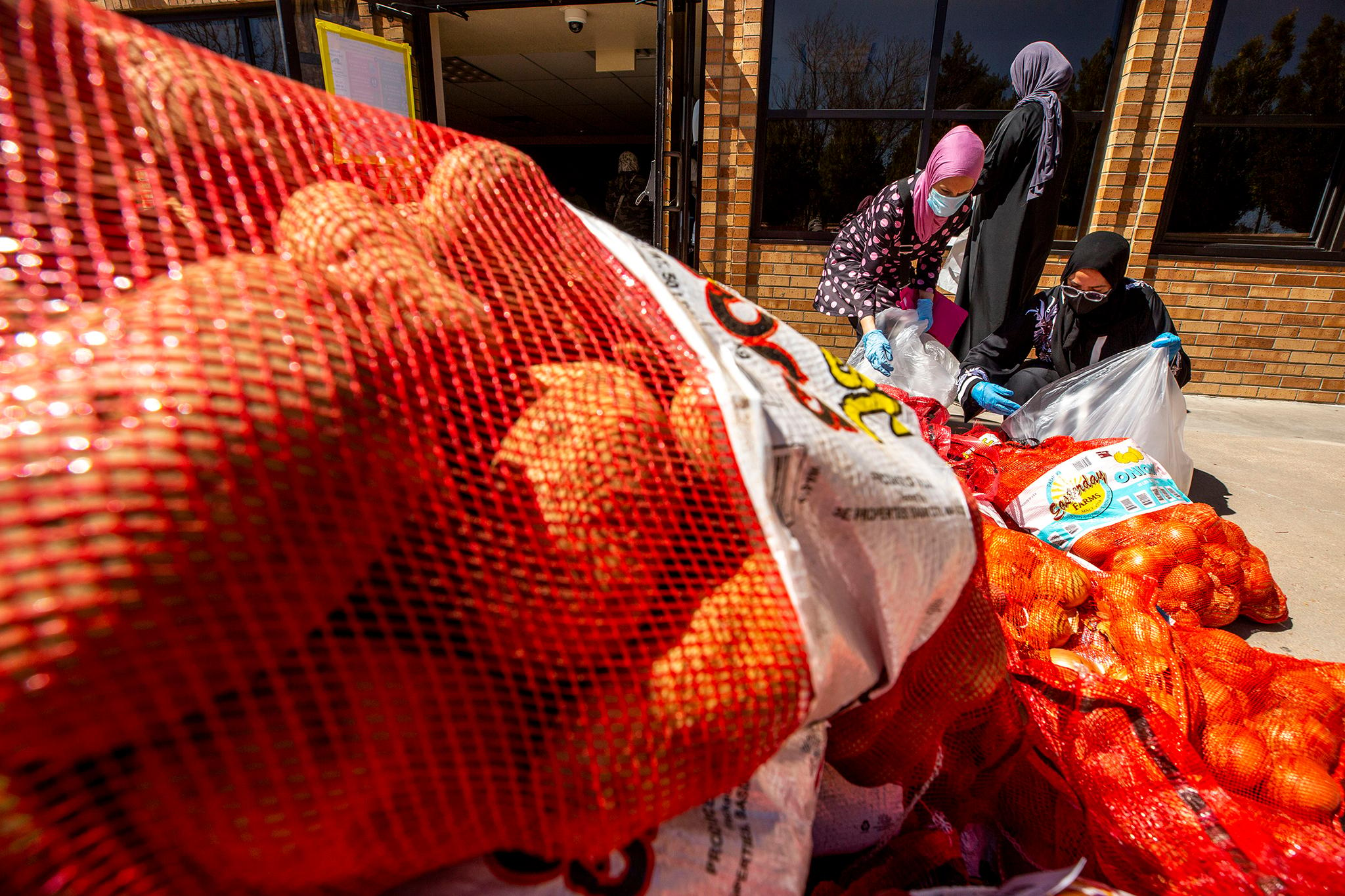
By the time Ramadan ended on Thursday, Downtown Denver Mosque Imam Muhammad Kolila said, they'd distributed thousands of meals. His mosque alone, which sits off Downing Street in Cole, was responsible for giving out at least 1,200 bags.
The food was intended for anyone in need, not just Muslims. Kolila said this is the first time he and other leaders have coordinated such an effort, and they did so because so many people were impacted by the pandemic.
"We made it a regular thing, especially for families that are struggling financially," Kolila told us. "Lots of people lost their jobs, so at least they find a meal at their table."
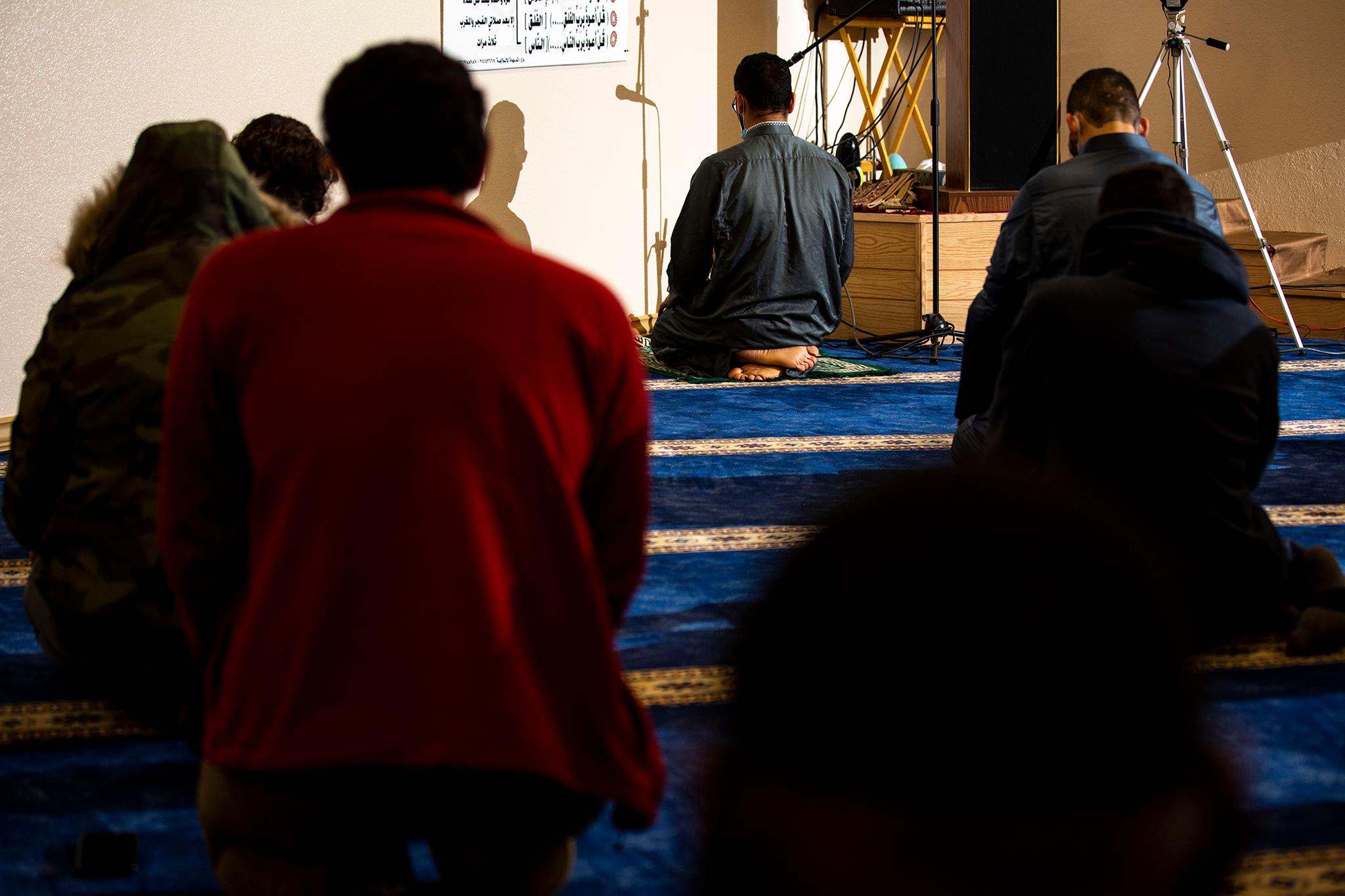
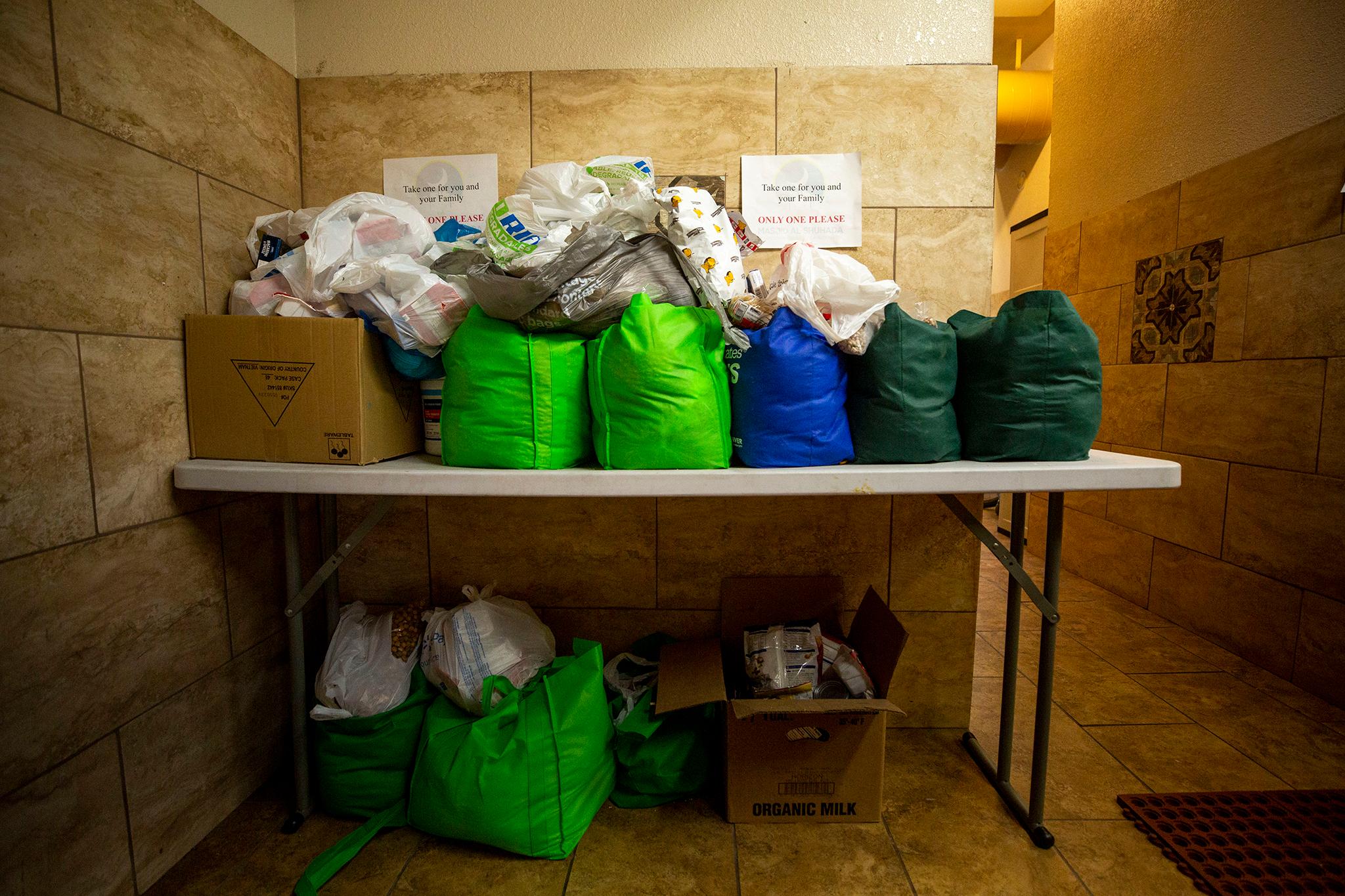
Food pantries across the city have seen huge upticks in demand since COVID-19 arrived. The growing need prompted response from all kinds of religious and social groups, like the Commerce City Sikh temple whose members delivered truckloads of aid to essential workers.
As with the Sikhs, the Muslim community members who helped distribute food during Ramadan said the act helped satisfy a spiritual obligation as well as need in their communities.
"This is Ramadan," Abir Al-Kabbani said as she directed the volunteers last month. "This is our religion. In this time we have to give."
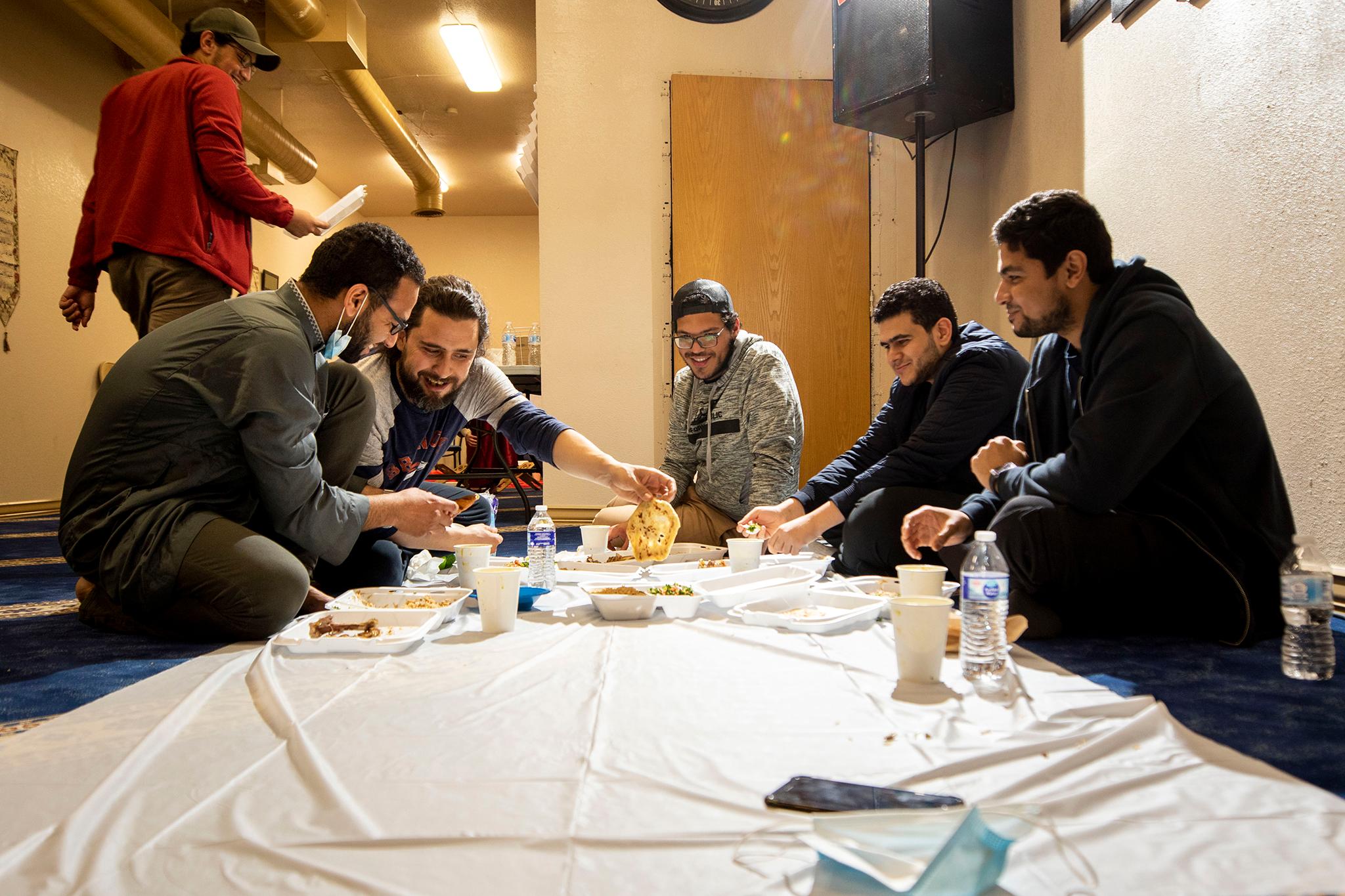
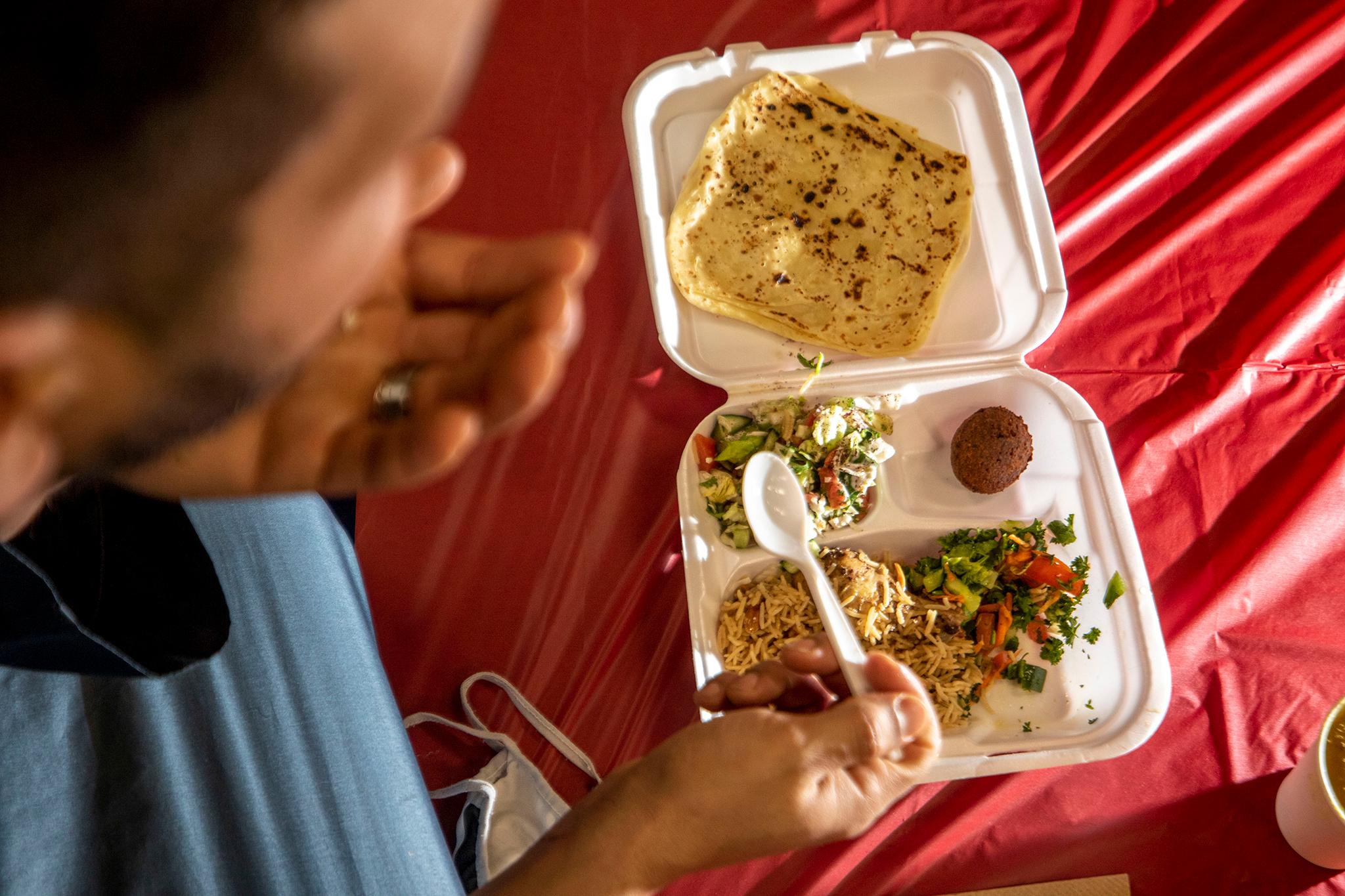
In Park Hill, Imam Abdur Rahim Ali has been giving out food on Fridays for 20 years.
While the inter-mosque effort was new in 2021, Ali's congregation at the Northeast Denver Islamic Center has been at this work for a long time.
"We got started when we were in a little storefront on Columbine and 34th Street. A brother told me we could get food from one of the food banks and then we could bring the food out," he recalled. "Right around 2001, we started giving out food, and we've continued that tradition."
Every Friday, Ali and members of his mosque hang out on the corner of Bruce Randolph Avenue and Albion Street and hand out boxes filled with fresh food to anyone who stops by. They don't ask questions, or even for people's names. If someone needs something, they'll get it as long as there's a supply. Ali said he's seen nicer cars pull up over the last year. The pandemic has brought a lot of people to their financial knees.
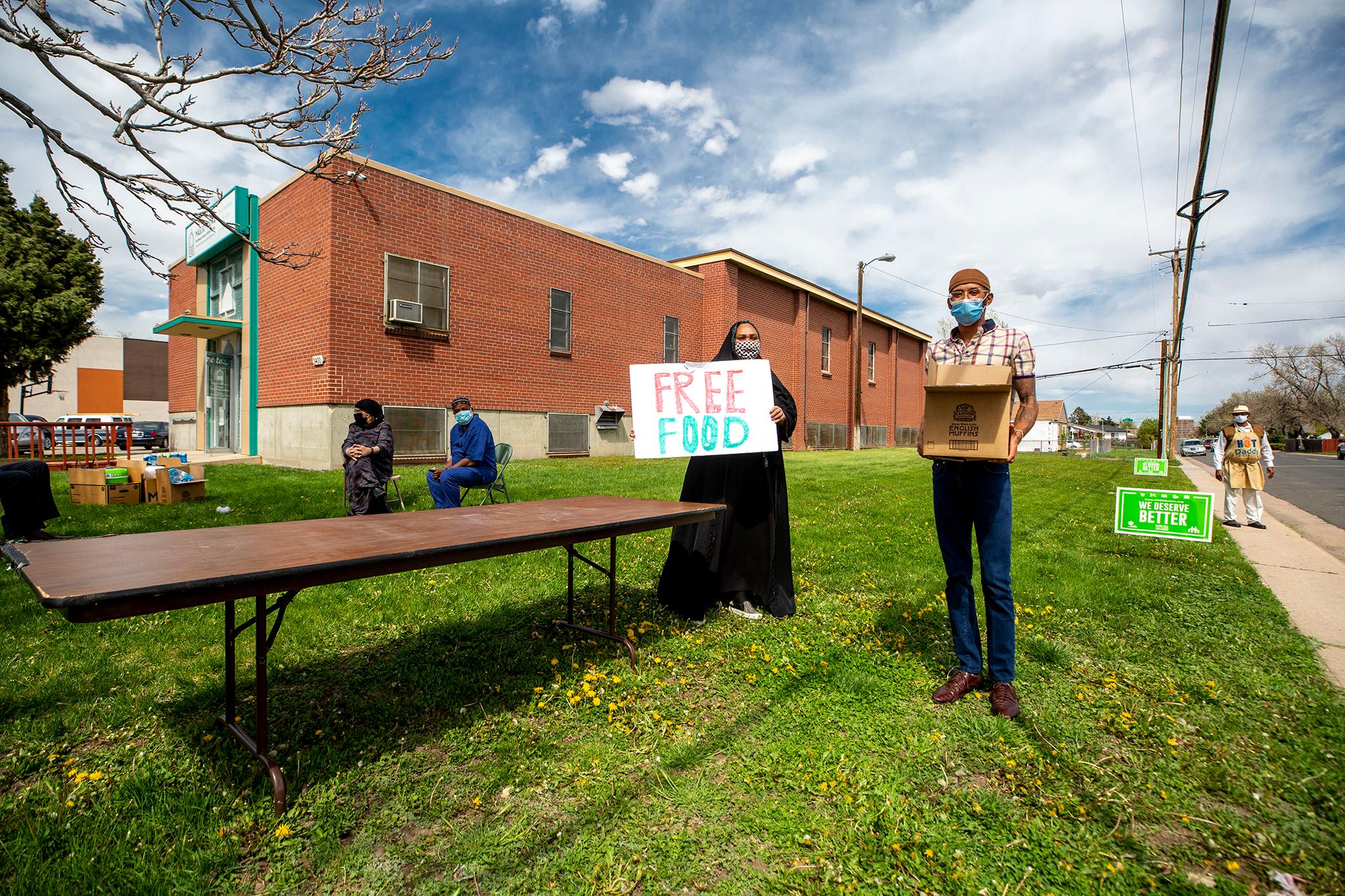
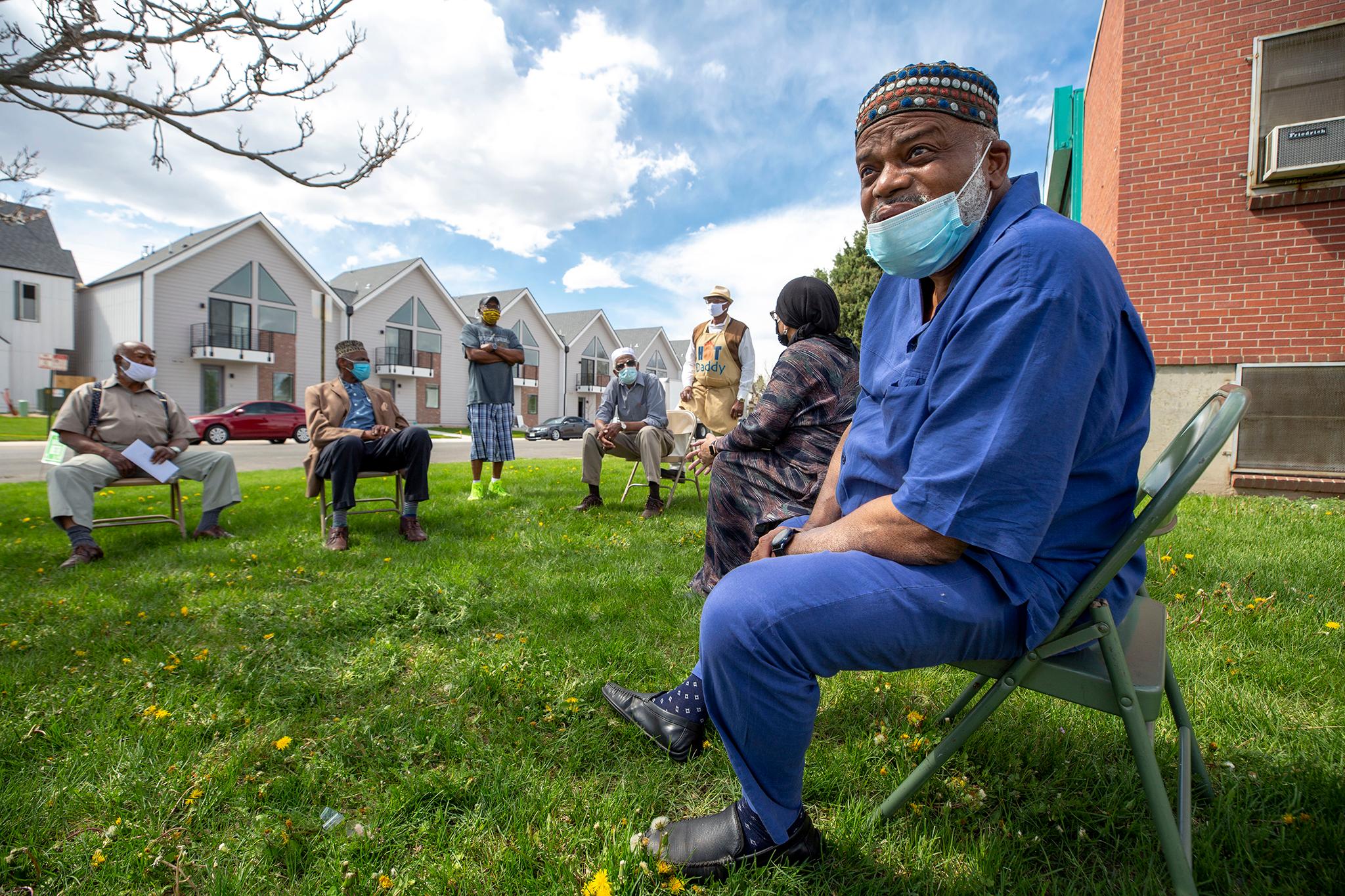
The Northeast Denver Islamic Center distributes food all year long, but Ali said it's an especially poignant act during this holiday. While fasting is a "reset" button for the soul, which allows people to return to their center each year and focus on God, Ali said it also attunes him to the need around him.
"Particularly in Ramadan you feel the hunger pains because you're fasting. But there's people out here who feel the hunger pains but they're not fasting. They're just poor and need some food," he said. "You feel the hunger pains, you're more sensitive to the poor."

